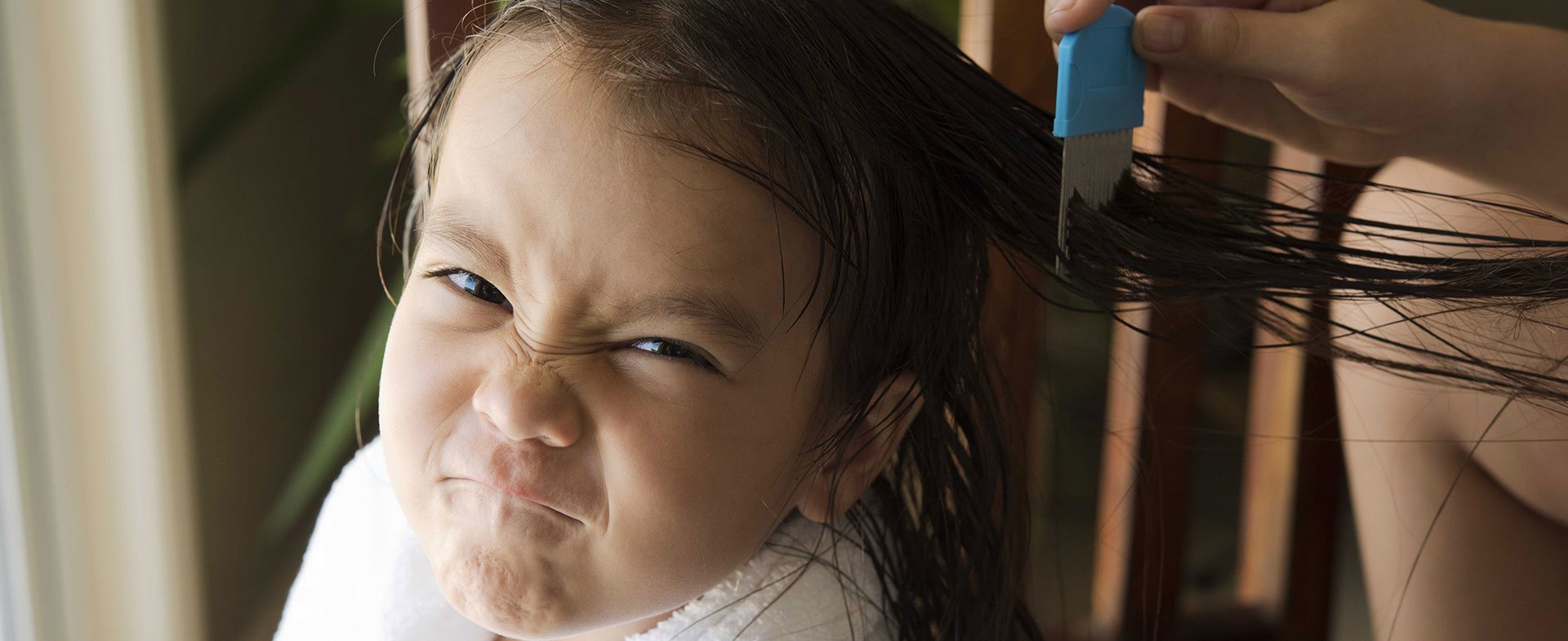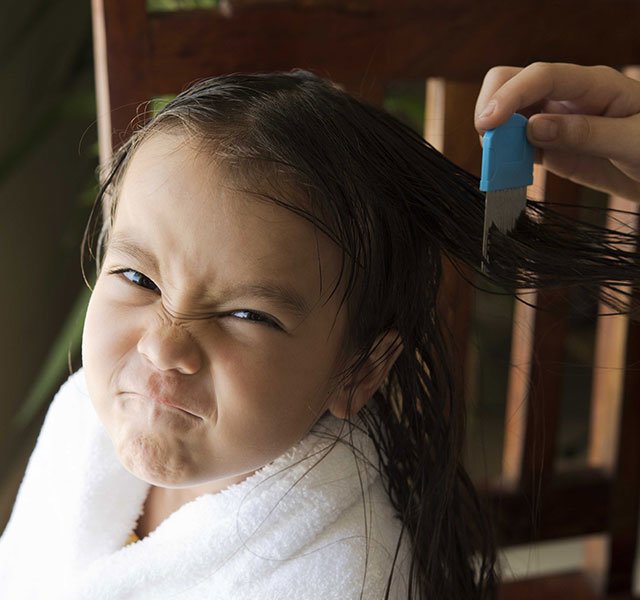The worst thing about sending your kids out into the world is they tend to bring stuff back with them – things like colds, flu, and yes, bugs! Head lice is commonplace in schools, day care centers and even places kids have extracurricular activities, like dance or karate studios. Anywhere children gather together in close quarters is a perfect breeding ground for the pesky critters. And while no parent wants to medicate their kids’ heads and comb through an army of lice and nits, the annoying infestation may be less bothersome than you think.
Here are my answers to parents’ most common lice questions.
Q: Are lice dangerous?
A: No, but they are annoying and sometimes tough to eliminate. Lice don’t spread disease and you don’t lose your hair as a result of infestation, but they can make a child’s scalp red, itchy and irritated.
Q: Are they contagious?
A: Yes, but only in very close quarters. Lice and nits can’t jump from head to head through a school or day care center. Head lice does not fly or jump and generally cannot survive longer than 24 hours when not attached to a scalp. Kids have put their heads together or share things that touch their hair for the bugs to move from child to child. So, children who sit close together in school – and those who share combs, brushes, hats and dress-up gear – are at greater risk.
Q: Who is most susceptible?
A: Lice don’t discriminate. It can happen to anyone, but we see it most often in younger children, especially those who attend day care. Napping on shared mats is a common culprit.
Q: What do they look like?
A: The female louse looks like a sesame seed. She lays about 10 eggs, or nits, each day. Nits look like tiny yellow, tan and brown dots – a bit like dandruff. They hatch within two weeks, leaving behind an egg case, which remains glued to the hair even though it’s empty. The newborn lice go through several different developmental stages during the next one to two weeks before they reach adulthood and begin laying their own eggs. This long cycle is one reason why doctors recommend treating lice twice over a two-week period.
Q: How do we get rid of them?
A: Most cases of lice respond well to over-the-counter medicated treatment. You can also purchase over-the-counter sprays to make it easier to remove the sticky nits (eggs) with a fine-toothed comb. Since you can see nits and lice with the naked eye, you’ll know when they’re gone. If over-the-counter treatment doesn’t work, take your child to the pediatrician. Prescription treatments are available for children six months and older.
Q: Do unaffected family members need treatment?
A: Yes! It can’t hurt and it might help prevent a re-infestation. If you have a child under six months old though, skip treatment and inform your doctor. It’s also a good idea to throw sheets, linens, towels and stuffed animals in the dryer on high heat for 30 minutes – and get new combs, brushes and barrettes.
Q: Should I keep my child home from school?
A: No. Historically, children with lice stayed home until they were nit-free, but according to the American Academy of Pediatrics latest clinical report on head lice, children should not miss school because of head lice or nits. Instead, children should receive treatment at home and return to school the next day. While they’re in school, encourage them to avoid head-to-head or close contact with other kids.
Whether your kids have ever had lice or not, it’s important to check their scalps regularly for any abnormalities. Divide children’s hair in sections and inspect the skin, especially for kids who have long or thick hair. If your child does get lice, remind him or her not to scratch, as excessive itching can lead to a bacterial infection. Still concerned? See your child’s pediatrician for additional tips and recommendations.
To find a doctor or pediatrician at Henry Ford, visit henryford.com or call 1-800-HENRYFORD (436-7936).



